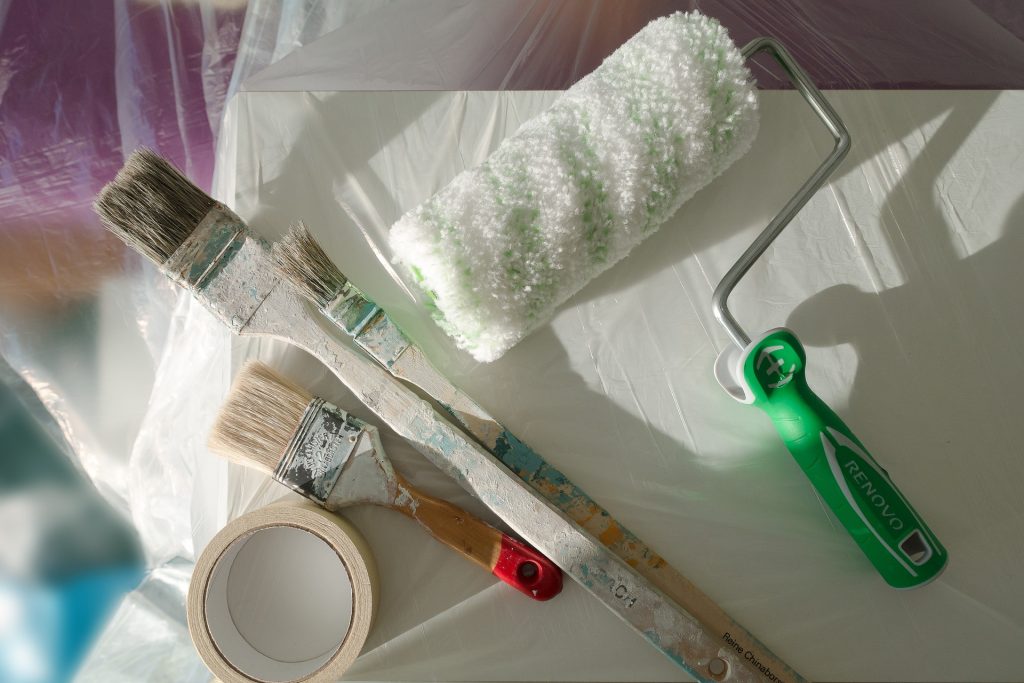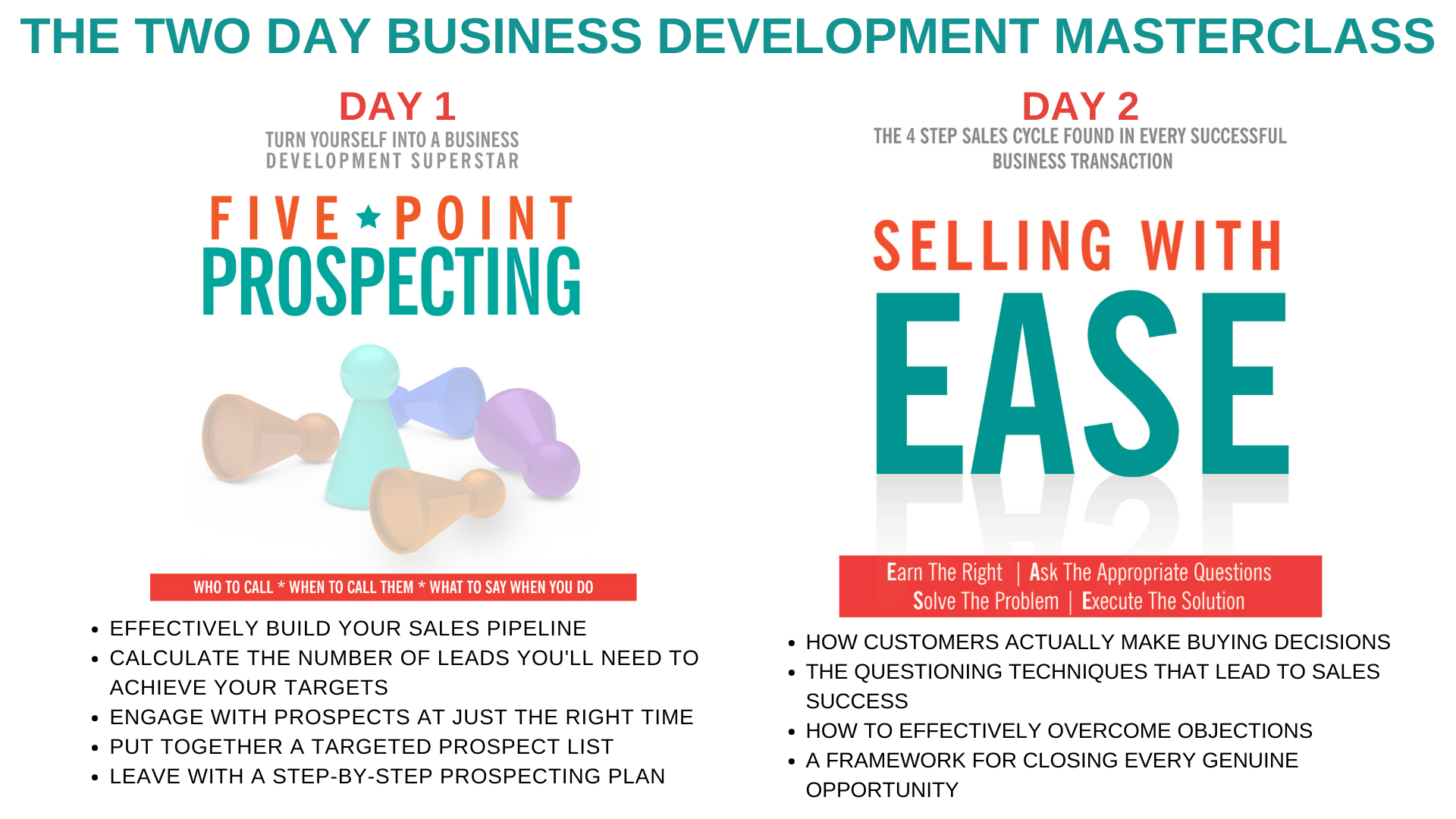Get More Business and Close More Prospects (Before You’ve Even Met Them)
What do you think most professional buyers can smell when they first meet a new salesperson?
I’m aware that’s a bit of an odd question (with a fairly obvious comedic answer) – but I’m asking because I’ve just been reminded that Queen Elizabeth thinks everywhere in the world smells like fresh paint.
 You see – everybody who The Queen goes to visit wants to look their very best – and so they decorate their rooms and spruce up the outside of their buildings just before she arrives – and therefore the air in her world is constantly intermingled with the aroma of some remnant of recently brushed paint.
You see – everybody who The Queen goes to visit wants to look their very best – and so they decorate their rooms and spruce up the outside of their buildings just before she arrives – and therefore the air in her world is constantly intermingled with the aroma of some remnant of recently brushed paint.
Actually, I once hosted a Dom Perignon Champagne luncheon for a group of VIP’s – and 2 hours before it was due to start – the General Manager of the prestigious hotel where it was being held, came in and took a look around the room – found a slight scratch in the paintwork (a tiny, unnoticeable blemish) – and then called for it to be touched up by the resident handyman.
Royalty and VIP’s are not allowed to see blemishes in their surroundings – that’s why their entire world smells of fresh paint.
So what has this got to do with prospecting for new business?
Well – I know all too well that there are times when prospects make it incredibly difficult for you to get in front of them – and when they do eventually grant you an audience – there are occasions when they just start laying into your product or service before you’ve even had a chance to get going.
Once – while working for a large, international company – I was asked to launch a secondary brand with a ridiculously tiny budget – and also told to make sure we were challenging the brand leader by the end of the year.
If that wasn’t going to be tough enough – other similar products were entering the marketplace with a HUGE FANFARE – while our bag of pennies didn’t even guarantee covering a large taxi fare.
But that didn’t matter to the top brass, the directors on the fifth floor had decided that if the launch was to be deemed a success then we needed to get 5 key accounts on board – and I looked after two of those target accounts.
They were my two biggest customers and I really didn’t want to upset them – never mind insult them – with a barrage of calls for meetings about something that appeared to be of absolutely no interest and didn’t fit – in any way – into their current plans or internal targets.
And I knew the first thing they were going to ask me was;
“We’ll only consider this if you create some customer demand – what does your advertising budget look like?”
And the only answer I had would have meant being shown the door before I’d even got to my fancy graphs or Nielsen data.
I was then appointed to run the launch team (which really added to the pressure on me – I think everyone else ran a mile from the opportunity) and so I gathered together representatives from brand and trade marketing, the field sales team and national accounts.
After eight hours of telling each other why it couldn’t be done, deep deliberation and hitting a number of brick walls – we had a bit of a eureka moment.
“We Were Going to Make The World Smell Like Fresh Paint for The Purchasing Departments Within Each of those Top 5 Accounts”
Whenever these accounts turned a corner they would see evidence of our success and marketing superiority.
The first part of this plan involved using our tiny budget to invest in 10 large billboard posters around the country.
Now – that might seem ridiculous, pointless and a waste of our resources – but these 10 posters were all going to be placed on the main roads that led to the head offices of our ten target customers.
There would only be a couple of posters covering each commuter route – but if you worked in the head office of any of those businesses, then there was a good chance that you were likely to see this advertising campaign.
Which meant that at each of the presentation meetings – before the question was asked by the buyer – we would enquire;
“What do you think of the advertising campaign for the launch?”
If by some slim chance they hadn’t seen any of the advertising boards – and a number of them hadn’t – we’d ask if it would be alright to take a straw poll of their colleagues and fellow office workers.
Turned out these straw polls delivered a 95% positivity rating – which wasn’t much of a surprise to us, but it was to the purchasing departments.
True – the boards weren’t everywhere – but they were deployed in a way that made the difference that we needed them to make – and if asked, we could indeed confirm in all honesty that the campaign was most definitely national (if not a little….sparse).
It wasn’t just the billboards of course.
Another idea that was introduced in an effort to make these 5 accounts feel a little “behind the curve” and missing out on something bigger, was to make sure that the target five’s smaller competitors had all signed up for the launch and we arranged for them to take part in loud and highly visual activity somewhere where it would be noticed by the big boys.
On top of that we instigated a field sales initiative so all those who worked at the coalface for these target accounts were made aware that it was head office and the purchasing department that were responsible for stopping them from getting involved in all this incredible activity – and that was why their smaller competition were taking all this business off them unnecessarily.
During the next couple of months, we also held five low-key launch parties with existing stockists talking excitedly about what was going on – and then invited the main people from a single target account to each party – ensuring that they were the only people in the room who weren’t benefiting from the incremental sales that this remarkable product was now delivering.
In certain circles this kind of activity is called – “Fake It ’til You Make It” – which may sound a little unsavoury – but there are a number of exceedingly fine examples from people you may have heard of.
I’m told that (before he was in any way successful) the British actor David Niven used to always emerge from the front door of the Waldorf Astoria Hotel – having walked in the back door, had a wash in the bathrooms and then strolled through the hotel, the doorman would open the front doors for him and then order a cab to his audition. The hotel staff thought he was resident for years.
And when Steven Spielberg was just 21 he allegedly sneaked past the guard at Universal Studios, found an empty bungalow, and set up an office. He then went back to the main switchboard and introduced himself and gave them his extension so he could receive calls.
Not so long ago, I condensed the four steps of the sales process into a simple acronym – E.A.S.E. – and the first of those four steps is Earn the Right
I can’t tell you how vitally important that first step is. If customers don’t trust you to help them at the beginning of the process, they sure as hell won’t trust you with their money at the end of it.
For some reason the salespeople who need to understand this part of the sales process the most, are usually the ones who skip over it.
But there are so many ways that you can change the outcome of a call before you’ve even made it.
So maybe it might be beneficial to everyone involved if we stop learning how to close a sale before we’ve actually fully understood how to open one successfully.
****************************************************
LONDON | MANCHESTER
(click on preferred city for full details)

